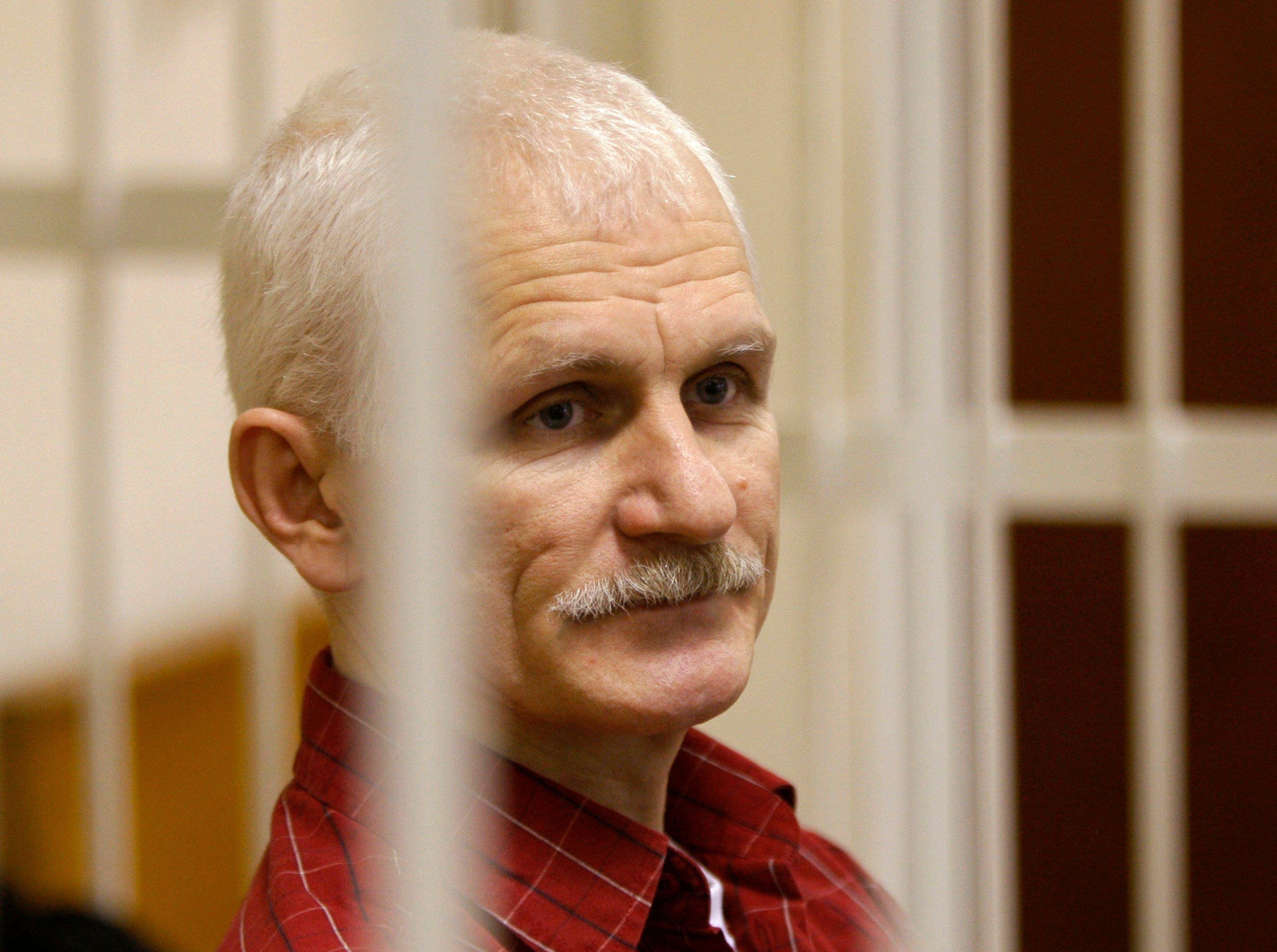Belarus opens trial of Nobel Peace Prize laureate Bialiatski
A Belarusian court has opened the trial of jailed human rights activist Ales Bialiatski, one of the winners of the 2022 Nobel Peace Prize

Your support helps us to tell the story
From reproductive rights to climate change to Big Tech, The Independent is on the ground when the story is developing. Whether it's investigating the financials of Elon Musk's pro-Trump PAC or producing our latest documentary, 'The A Word', which shines a light on the American women fighting for reproductive rights, we know how important it is to parse out the facts from the messaging.
At such a critical moment in US history, we need reporters on the ground. Your donation allows us to keep sending journalists to speak to both sides of the story.
The Independent is trusted by Americans across the entire political spectrum. And unlike many other quality news outlets, we choose not to lock Americans out of our reporting and analysis with paywalls. We believe quality journalism should be available to everyone, paid for by those who can afford it.
Your support makes all the difference.A Belarusian court on Thursday opened the trial of jailed human rights activist Ales Bialiatski, one of the winners of the 2022 Nobel Peace Prize.
Bialiatski and two other top figures of the Viasna human rights center he founded face up to 12 years in prison if convicted of financing anti-government protests.
They were arrested after massive protests over a 2020 election that gave authoritarian President Alexander Lukashenko a new term in office. Lukashenko, in office since 1994, has suppressed opposition and cracked down on independent news media.
The 2020 protests persisted for several months, the largest wave of protest to hit Belarus, and authorities took harsh action. More than 35,000 people were arrested, and thousands were beaten by police.
The charges in the trial are connected to Viasna's provision of money to political prisoners and helping pay their legal fees.
“This is a political trial for a Nobel laureate, which has nothing to do with law,” Viasna lawyer Pavel Sapelko told The Associated Press.
Bialiatski was not able to attend December's Nobel awards ceremony; his wife gave an address on his behalf. He shared the peace prize with the Russian human rights organization Memorial and Ukraine's Center for Civil Liberties.
Lukashenko further cracked down this week by signing a law allowing authorities to deprive political opponents of citizenship.
The law, which takes effect six months after its official publication, targets citizens convicted of “extremist activity” and who are living outside the country. This will deprive the citizenship of thousands of Belarusians who fled abroad, including opposition leader Svetlana Tsikhanouskaya, against whom a criminal case has been opened in Belarus.
As the crackdown against dissent continues, the Minsk government's cooperation with Russia has raised fears of more direct involvement in the war in neighboring Ukraine.
The Belarus Defense Ministry said Thursday that Russia is transferring to Belarus personnel, weapons, military and special equipment to strengthen a joint military group.
“Further combat coordination activities are planned with the arriving units at the training grounds of Belarus,” the Defense Ministry said in a statement.
Belarus provided Russia with a launch pad for its invasion of Ukraine last February. Russia uses Belarus territory to launch rocket attacks on Ukraine.
The Belarus Defense Ministry reported that a joint tactical flight exercise with Russian aerospace forces is scheduled this month.
Russia and Belarus have announced a plan to make Belarusian aircraft capable of carrying nuclear warheads. Lukashenko said Belarusian crews are training with Russia to fly these planes.
At the end of December, the Belarusian Defense Ministry reported that Russia had deployed 10,200 Russian troops in the country.